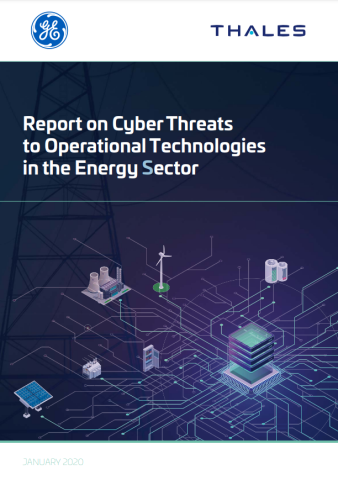The energy sector: a prime target for cybercriminals
The energy sector encompasses all activities related to the extraction, production, distribution and consumption of energy in all its forms: electricity, oil, gas and renewable energies. This industry is particularly critical because it supplies both the population and all other sectors of activity that make up an economy with energy.
Given that the digital transformation of the energy sector is in full swing, companies operating in this industry are exposed to unprecedented levels of cybersecurity threats.
In this tense context, how can the energy sector rise to the challenge of cybersecurity?
When digital transformation increases vulnerability
Digital technology provides energy companies with a host of major innovations and the convergence of IT and OT systems marks an important milestone. Legacy OT systems are now connected to the cloud, while IoT is becoming more widespread and allows predictive maintenance on equipment, for example.
But this digital transformation involves ever-more complex infrastructures, the use of new platforms and a large number of connected sensors, all of which generate increasingly greater volumes of data.
Thus, while these innovations represent new opportunities and performance enhancement for energy companies, they also increase their vulnerability.
The energy sector: a prime target
Energy companies have unfortunately become a prime target. The conflicts between Ukraine and Russia, and between Israel and Palestine, expose energy infrastructure to direct attacks by foreign militants or intelligence services aiming to destabilise a country politically.
At the same time, cybercriminals motivated by pure profit are upscaling their activities and creating increasingly complex cyberattacks.
The oil and gas industry is a particular target. In 2022, 21 ransomware attacks were reported by industry organisations, ranking it the fifth industry most affected by these kinds of attacks.
Cyberattacks can sometimes be coordinated to put the energy supply of an entire country under pressure. In April 2023, cybercriminals attacked 22 critically important Danish energy companies by exploiting a vulnerability in the firewalls of Taiwanese manufacturer Zyxel. The consequences could have been catastrophic for Denmark: the cybercriminals managed to penetrate 11 information systems before being stopped by the cybersecurity teams of these organisations.
Compliance is not synonymous with cybersecurity
Many countries have become aware of just how urgent this situation is and are now introducing new regulatory frameworks to encourage their critical businesses to protect themselves more effectively against cyberattacks.
This is notably the case within the European Union, where the NIS2 Directive came into force in September 2024. This requires companies concerned (particularly those in the energy sector) to implement a series of cybersecurity measures, for example, in data encryption, access management or a continuity plan.
Despite this, it is important to remember that compliance is not synonymous with cybersecurity: a company can be fully compliant with all relevant regulations and still have a very low level of IT security.
It is therefore vital to be proactive in implementing a comprehensive and robust cybersecurity strategy to protect companies from cybersecurity threats.
A four-step approach to cybersecurity
Thales supports energy companies in protecting their OT and critical infrastructure. To do this, we offer a four-step pathway:
1. Raising awareness of IT risks and threats:
A team of specialists perform an in-depth analysis of your OT systems. Their goal is to map all of your assets and connections in order to identify hidden security flaws. They then provide you with recommendations to boost your security cover.
2. Deploying a cybersecurity system and training teams:
Secondly, our experts help you to neutralise the potential threats identified and to implement a security policy that involves checks and procedures. They also train your IT teams in cybersecurity best practices and in co-creating security strategies that are tailored to their specific needs.
3. Detecting and responding to cyberattacks:
Thales has a global network of 9 Security Operations Centres (SOCs) to ensure continuous monitoring of your OT infrastructures. Thanks to the expertise of 5,000 cybersecurity specialists, every anomaly detected generates an alert, which is then immediately analysed to ensure a swift and effective response.
4. Developing cyber resilience:
We regularly test your ability to detect and respond to cyberattacks in order to identify and strengthen your IT and OT defences. As part of a continuous improvement process, a digital twin of your environment is created so that realistic and reliable simulations can be carried out to ensure you are well protected against the most sophisticated of cyberattacks.
If your company operates in the energy sector and you wish to boost your cybersecurity, contact us to talk to one of our experts.



